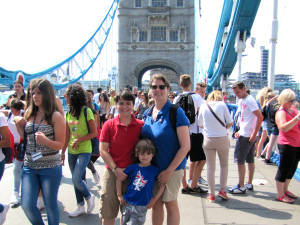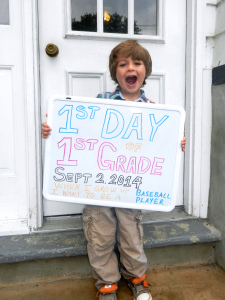Rachel Spangler's Blog, page 21
December 4, 2014
25 songs of Christmas: Dec 4 – What Child is This?
What child is this in mean estate where ox and ass are feeding? What child is this born in a stable? This is Christ the king.
What child is this born to an unwed mother? What child is this in dirty clothes? This is Christ the king.
What child is this born into poverty? To parents who really can’t afford him? What child is this born on the wrong side of the border? What child is who is refuge in the land of his father? This is Christ the king.
What child is this, who goes to bed hungry? What child lays sick without access to medical care? Who has no money for books or school supplies and is destined to fall behind? This is Christ the king
What child is this gunned down in the street? Or in their classroom? Or Library? This is Christ the king.
What child is this being held at the border? What child who lives in fear of being found by the authorities… or not being found by the authorities? This child also is Christ the king.
The issues of the day have never occurred in a vacuum. Not in the time of Jesus and not now. Decisions made in statehouses have very real consequences for very real people. In Luke 9:48 Jesus says, “Whoever receives this child in my name receives me.”
Could you look at Christ and send him back across the boarder? Could you tell God incarnate He didn’t deserve health care? Could you refuse Him food? Could you look Jesus in the eye and say He deserved to die?
And the king will answer them, “Truly, I say to you, as you did to one of the least of these, you did to me,” (Matt 25:40)
Every child is Christ the king.

December 3, 2014
25 songs of Christmas: Dec 3 – Oh Come Emmanuel
I generally save today’s song for later in the month because it’s one of my favorites. I’m not sure why. Despite its heart-aching beauty, it’s not peppy or happy. Even the refrain of “Rejoice, rejoice” sounds plaintive more than anything else. I’ve seen it called the most solemn of all Christmas songs, and it’s hard to disagree. The root of its lyrics may also make it one of the oldest ones still widely known (though the tune is from the 15th century). Maybe it’s the age or the language or its Old Testament allusions, but the song makes me think of the people of Israel at the time of Christ’s birth. I can almost feel their desolation. The narrator pleads with God to ransom captive Israel.
Can you imagine being held captive in your own country? To be subject to an authority you didn’t elect and that had no limitation on the violence it could inflict? To see the multiple systems of government working separately or in tandem to break the backs of their people, to cut them off from their families and intuitions, to uproot them from their homes, to toil and starve so that the rich and powerful could live lavishly. This was supposed to their second Eden. The land rumored to flow with milk and honey. A land supposedly full of the promise of their ancestors, but the promise of the nation shatters as children are killed in the streets.
Actually, maybe that description is something a lot of people can imagine pretty well right now. And still in the midst of all that desperation, death and mourning, the singer finds reason to rejoice.
Rejoice. Rejoice. Emmanuel shall come to thee, O Israel. Note the lyrics don’t say that Emmanuel has come. They say that Emmanuel shall come. Emmanuel means God with us. The line literally means “God with us” shall come to thee.
It’s not a given. It’s not past tense. It’s not limited or conditional. God with us is to be sought and to be found. To ask for and to have answered. The song is a prayer and a response. It’s a reminder to call out to God in this time in the place and know that God shall come. God will be with us. God has come to Earth before. God has saved the world before. God shall come and be with us once more.
Go ahead and listen. Sing the song, say the payer no matter where you are in the world, in your life, in your spiritual journey. Surely this is a prayer even we, a divided people, can all agree on.
Come thou key of David come, and open wide our heavenly home. Make safe the way that leads to thee, and close the path to misery.
Come desire of nations binds, all peoples in one heart and mind. Bid thou our sad divisions cease, and be thy self our king of peace.
Lift those words up in voice and heart, and rejoice in the knowledge that Emmanuel shall come to you.

December 2, 2014
25 songs of Christmas: Day 2 – I Heard The Bells On Christmas Day
In keeping with the theme of celebrating Christmas in a time of trouble today’s song comes from a Longfellow poem written during the civil war. He took up his pen over the body of his wounded son at a time when our whole country was torn apart. The divisions ran deeper than state lines, clawing at the seems of every family with brother turning against brother and children rising up against parents. Neighbors took up arms against one another and blood ran like a river across battlefields great and small. Everyone was pulled into the fight as issues of authority, autonomy, and basic human decency were called into question. The obvious answer on one issue conflicted with the common sense solution to another, and every one of them carried the heavy burden of human life saved or spent. The future of an entire race of people hung plainly in the balance, and deeper, more sinister questions stirred about the soul of a nation that could subjugate its brothers and sisters.
So many of those issues still weave their way through our discourse even today. In some ways we have come so far, in others we seemed hopelessly doomed to revisit the sins of our collective fathers. And still the bells continue to ring, just as they did in the winter of 1863. They call to us still, proclaiming, “God is not dead, nor does He sleep.”
It’s a reminder to me that we, as a country, as a people of faith, as individuals have been here before. We have sought the guidance of God in the darkest hour and we have all hung our heads in despair as hate has marred the song of peace on earth and good will toward all. We have mourned, we have fallen, we have lost more than any one person can comprehend, and still the world revolves from night to day. Slowly, painfully, and rarely linearly we march, ringing, singing, as the angels did that first Christmas because Christmas is not a vacation, it is not a break from the struggle. Christmas is not a passive experience. Those bells were never meant to be a reminder of what we have, they are a call to action, a ringing testament to what we are all called to, believe, to pursue, to build.
“The wrong shall fail, the right prevail, peace on earth, goodwill to all.”

December 1, 2014
25 Songs of Christmas: Dec 1 – Coventry Carol
I do not feel very Christmasy. I’ve felt the bah humbugs many times before. There’s always so much to do with the gift giving and the baking and what not. I know what it’s like to lose the sprit of the season to the stress of the season and I’ve developed skills for getting my joy back on track.
This year is different though. This year the worries on my mind are not as easily forgotten or managed. No amount of quiet time or carols can distract me from the fact that the city I love is on fire, black bodies lay dead in the street, students are being gunned down in libraries, people who dedicate their lives to helping people across the world are being beheaded, and assaults on young women are ignored by Universities trying to save face. Where is the God of Mercy now in this sea of unanswered prayers? This does not feel like Christmas, in fact it makes me feel guilty for even thinking about Christmas. How can a person celebrate peace and love and joy in a time when nothing in the world inspires any of those feeling? How can we have a Christmas in a world that lacks everything Christmas was meant to inspire. It’s almost like that first Christmas never happened at all.
Except it did. And what’s more it didn’t happen in a time when the world was peaceful or joyful or loving. The first Christmas took place in a desolate land under the occupation of one of the most brutally oppressive armies the world has ever known. The Christ child was born into abject poverty in a cold, dirty, unsanitary stable. His parents were members of a race distained by most of the world, and on top of that their community shunned them because they didn’t fit the mold of what an upright family should be. Worst of all the local authorities had so much contempt for even the idea of His existence that openly slaughtered innocent children in the streets. Christmas didn’t happen because the world was ready. Christmas happened because the world needed it to. And it’s going to happen again this year whether we feel ready or not because we all need it.
Maybe the idea of a clean crisp beautiful night filled with golden light and pastoral scenes resonates with you, and if so hold on to that warmth as long as you can, but if you, like me, are struggling with the world at large remember there’s another side to the story. It might not be cute, or glittery, or easy to sell in a neat package. It is not always politically correct or comforting. It is a radical call to a complete overhaul of the way we look at everything from the highest stages of the world order all the way down to the way we interact with neighbors in need. This is a story of fear, grief, and anguish, but it is not one of unanswered prayers. This understanding of Christmas has the revolutionary power to topple kings and overcome even the grave. It is a tale of a loving God who looked down into most dire of circumstances and instead of condemning humans the hell they wrought of the beautiful creation they were handed, God sent a personal, radical, savior to show to the world that while we may suffer, we do not suffer alone.
This gritty, complicated, revolutionary message is the one I will carry with me through this season, and the one I try to share as I journey through the next 25 days. I hope some of you will come along with me.

October 27, 2014
Goodbye Cate
I had a dream last night about losing a friend. When I woke up, I thought for a second that’s all it had been, a dream. Tears fell again upon realizing it wasn’t. I know that Cate Culpepper would not want me to cry over her passing, and yet I can’t seem to stop. I’ve dissolved into a blubbering mess multiple times over the past twenty-hours, and I fully believe she’s somewhere looking down on my tears and cracking jokes about them right now. She was irreverent like that, never rash or inconsiderate in her humor, but also unwilling to let me slip into too dark a place or take anything too seriously for my own good. She saw the good in things, in people, in me. From the posts I’ve seen both publically and privately, I think she played the same role in many people’s lives.
It’s strange to try to sum her up, as if that sort of summation could ever be done by anyone, and least of all me. I feel like I didn’t know Cate very well at all. I certainly didn’t know how sick she was. I feel terrible for that, even while realizing I likely didn’t know because she didn’t want me to. But more than that, I know very few details of her life. We didn’t talk about her personal life or her history much. I hope that wasn’t because I failed to ask. We did talk about her work with her cherished youth in Seattle sometimes. We talked about her beloved Kirby occasionally. We talked about issues of faith more often. We talked about writing, both the art and the business of it, most often, but even that didn’t happen frequently. In reality we only talked a couple times of year, and by talk I mean we emailed or facebook messaged. We met in person only once, and very briefly. To be honest, the level of grief I am experiencing seems disproportionate to the amount of time we had together. I spent much of last night trying to sort out my feelings on why that is.
In her farewell video, Cate said, “There’s no need to measure the happiness of a life by it’s longevity.” She was very wise, so I will believe her and humbly add that maybe there’s also no need to judge the happiness of a friendship by its frequency of communication, because Cate’s friendship has certainly been one of my most cherished since breaking into this business. It was also one of my most dependable. At the darkest hours of my career, Cate was there for me. During a time when I counted the people I could trust in the business on one hand, she was always among them, and I like to think I know which of those fingers she would have liked to be counted on because she never left any doubts about her willingness to “Go to bat for y’all in a hot second.” I cannot begin to go into details about this time in my career or the things Cate said to help me get through it, partly out of respect for everyone’s privacy, but also largely because the statute of limitation is not yet up on some of the pranks we proposed or pulled through the years.
Her support for me was so unwavering it’s hard to imagine what it will be like going forward without her. She was a bellwether for me without even knowing it.
It wasn’t so long ago that I struggled with so much uncertainty about my own gender identity, not to mention my fear of how it would be received in the world of Lesfic. I worried that maybe I should femme it up, or at least keep to labels people understood, like butch. The established dichotomies, while not without their detractors, at least had a solid place in our community, but Cate saw me clearly even before I fully saw myself. Even in the earliest days of our friendship, she took to calling me her “handsome lad,” “darling boi,” or “mi hermano,” and I found myself almost giddy at the terms of endearment. She used playful pronouns, and even created a few of her own terms that I co-oped for myself. She recognized that part of me and made me feel accepted, understood, and even enjoyed long before I felt those things about myself. To this day, even though others have become more comfortable with those terms, few have ever given me as much pleasure as hearing them from Cate the Great Amazon Queen.
Likewise, she encouraged me to write and talk about my faith at a time when I feared how such topics would be received. I still hold tight to two emails she sent on the subject. At one point she said, “I hope you’ll “go on” for much longer about your faith, when it feels right. You would write beautifully about this. I fully understand your (concerns) but consider writing it anyway…As spirituality is so central to your life, I’d think writing about it would be a great stretch of your creative wings — a story from your heart.” The words meant even more from me because Cate didn’t share in my religion at all, to my knowledge. She had found the Divine along a different spiritual path, but she never criticized my own. In fact, when another author once mocked me for my faith, Cate swooped in, seemingly out of nowhere, and defended my faith more swiftly and decisively than I could have. Her courage, strength, and consideration inspired my own. She gave so many of us such a wonderful gift by showing us the best in ourselves even before we knew it was there.
At the same time though, she wasn’t one to linger in the heavy, or in places of fear or sadness. I know that when the shock and sadness of her passing fade, Cate’s sense of humor and mischief will once again be the first things that come to mind when I remember her. I will be forever thrilled that the last conversation we had consisted of an uproariously funny and hilariously detailed revenge fantasy that came with her sincere assurance that she’d “love to fuck with a few people and then take pictures of them and send them to you to affirm your confidence in me!”
We both closed the thread by saying “I love you,” a fact I will be eternally grateful for (please don’t ever leave those words unsaid). But she was never one to leave things on too serious a note, so I won’t end this reflection that way either. Instead I will close with the last words Cate ever said to me, I think they are a fitting summation of the nature of our friendship and a perfect example of what I will miss so much.
“Just remember, I will be happy to donate Cate’s personal butt-sweat to this cause at any time! Just steal something from their office and mail it to me — I’ll mail it back after ‘treating’ it.”


October 14, 2014
Women’s Week 2014
I am so excited! It’s almost time for me to head to Provincetown for Women’s week. I hope some of you are headed that way as well and if you’re not, start planning now to make it next year. Ptown is one of my favorite places in all the world and women’s week has something for everyone. I get in on Thursday afternoon this year and I am going to hit the ground running with a slew of events jam packed into the next few days. If you’re going to be around, please stop in and say hello. Few things in the business are more fun than getting to meet readers so please don’t be shy!
Here’s where you can find me:
Thursday October 16
5:00 – 7:00 Bold Strokes Books Meet and Greet at the Harbor Lounge (359 Commercial Street). Drop in an have a drink with your favorite BSB authors. This is a casual event where readers and authors get a chance to interact with each other in a more informal setting. Once again, please don’t be shy. Don’t let the authors all sit up against the wall in grand introverted fashion thinking no one likes us. Please come up an introduce yourself!
Friday October 17
10:00 – Reading with the GCLS in Provincetown Crew at The Sage (366 Commercial Street).
1:00 – I’ll be reading on BSB’s “Timeless Love Panel” at the Provincetown Library (356 Commercial Street) with Heather Blackmore, Shelley Thrasher, Melissa Brayden, and CA Popovich
3:15 – Book signing at Recovering Hearts (4 Standish Street) with Heather Blackmore, Shelley Thrasher, Melissa Brayden, and, C.A. Popovich
Saturday October 18
10:00 – Annual Readers and Writers Wiffle Ball Game (102 Bradford Steet) all are welcome to play or watch this friendly game. No taken required. This is another chance for informal interaction and lots of laughs. It’s also your best chance to meet my super cute son, and beautiful wife. The game is one of the highlights of my trip every year so don’t miss it!
1:00 – I’ll be moderating Bold Strokes Books “Kiss and Tell” panel at the Ptown Library (356 Commercial Street) with readings from Melissa Brayden, Emily Smith, C.A. Popovich, Kris Bryant, MJ Williamz.
2:00 – I’ll be reading from my forthcoming release Heart Of The Game on the Fresh and Forthcoming Panel with Radclyffe, Justine Saracen, Ali Vali, and Kathleen Knowles, at the Ptown Library (356 Commercial Street).
4:05 – I’ll be signing books with Radclyffe, Justine Saracen, Ali Vali, and Kathleen Knowles at Recovering Hearts (4 Standish Street)
If you want to learn more about all Bold Strokes Books events check out their Facebook page. And if you’re looking for more information on a wider range of Women Week Events Check out the official website here: http://womensweekprovincetown.com
I hope to some of you there!


September 23, 2014
Back To (The Book) Business
Happy Bisexual Awareness Week!
I’m not sure if you know this or not, but I wrote a blog about a “big tent” approach to lesbian fiction and biphobia last week. I won’t assume you all saw it, but judging from the response, I think a lot of you probably did. I wrote the blog because one or two people I love had been hurt, and they felt alone. I wanted them to know they weren’t. I wanted them to know they had me. I wanted to let them know that at least one, relatively successful, and 100% gay reader and writer of lesbian fiction had their back. I expected a little bit of backlash. I expected I might lose a few readers. I thought I might even lose a friend or two. Boy, was I wrong.
The response to last week’s blog caught me completely off guard. It was viewed over 1,000 times, making it by far the most popular blog I’ve ever written, and between all the social media platforms I track, it’s been shared nearly 500 times. It’s garnered nearly that many “likes,” “favorites,” and “comments.” I also have 40 new Facebook friends and even more new followers on Twitter. The blog itself has over 100 new followers. Best of all, I’ve gotten over 50 very personal messages of support from women who have been bullied and put down, ostracized or made to feel less-than because of how they identify. I’ve heard from women who came out too early to be trusted, women who came out so late they got accused of “having their cake and eating it, too,” bisexual women who are in relationships with men, with women, or single and heartbroken that neither the straight nor the gay community would welcome them. I heard from trans men who have lost their entire support system for daring to be themselves and young people who want to transition but live in fear of losing everyone they love. It’s been beautiful and devastating at the same time, but it’s also been so wholly positive.
The best I can guess, between the blog, the emails, Facebook, Twitter, Tumbler, etc., I’ve gotten more than 700 positive responses. Then I got one negative comment. It started out fine enough, if a little illogical (if other people discriminate, why can’t we?), and I had my mouse hovered right over the “accept” button because I have never once censored a legitimate comment on this blog, even the ones that haven’t been glowing. Then I got to the last paragraph. It turned nasty and implored me not to “plant my flag of inclusiveness” in lesbian spaces. I backed away from the approve button. This wasn’t just a polite disagreement. It was the same “us verses them” rhetoric that got us into this whole mess in the first place. And yet the logic was so flawed, so childish, so limiting, my first response was to tear it apart. I’m a writer (and an arguer if you ask my wife and parents). This was the stuff of separate-but-equal, and history has taught us enough about how well that works. I felt my response would be a quick and decisive blow. I would only have to descend into the mud pit for a moment. And yet, I would have to get muddy again. I stepped away from the computer. Took my kid for walk. Then asked for some advice from some friends. The answer was a unanimous “don’t go there.”
And the longer I let those comments sit, the more I realized that I didn’t have to go there. Last week I said the only line I would draw on my blog is love over hate. Everyone is welcome in my Big Queer Tent as long as they respect everyone else’s right to belong, too. And more than 700 of you raised your hands and said that was exactly the type of space you wanted to be part of. Over 700 to 1. There is no more argument. It is already won. There’s no need to continue to beat an idea that’s already dead, or at the very least in its death throes. Engaging those ideas only gives them a voice they haven’t earned. It allows negativity to continue to grow even after it’s been rejected. It does exactly what I said I wouldn’t do: It allows hate to infiltrate a space dedicated in love.
So I’m letting go. I am going to resist the urge to sling the mud back. The people throwing it have already had more than their 15 minutes of fame, and their ideas are clearly one step from becoming fossils. The idea that some queers deserve to be celebrated while others deserve to be left in the cold, not because of how they write or how they conduct themselves, but because of who they are and whom they love belongs in the archives with separate water fountains and the all-male vote. Its time has come and lasted too long, but it’s on the way out the door. I will not prolong its exit.
I’m ready to move on. I ready to get back to talking about really good stories. I’m ready to talk about really awesome writers. I am ready to go back to judging both the books and their authors by what’s between the pages rather that who’s with them between the sheets. I am ready to get back to what brought us all to this big queer tent in the first place, and I’m can’t speak for anyone else, but for me, that’s books. I’m going to sit down right here under my flag of inclusiveness and encourage every one of you to join me. All who enter seeking love will be welcomed in the same vein.
If you’d like to be part of this bigger, brighter, more welcoming future we’re building here, go ahead and post a comment about a really good book you’ve read lately.


September 11, 2014
The Big Tent…(Or F*ck Biphobia)
But things change. People forget. Life goes on even in the wake of tragedy. Wars start. People starve. Children are attacked in their schools. Memories of goodwill toward all are hard to come by, even in our own little circles. Just this week there was a huge row in my small little lesfic community that brought home how awful and hypocritical we can be. A woman said horrible things that aren’t worth repeating about an organization many of us care about and people I personally love. The root of her malice was biphobia: The fear, aversion or hatred of bisexuals. It’s not terrorism, and no one died, so I’m not even trying to put it on that level, but I was once again shocked at the idea of people hurting other people over such petty differences. Queers attacking other queers for not being queer enough.
I wrote response after response. Some of them angry, some of them sarcastic, many of them both. I had one full-on tirade about how as far as I could tell, I am the only one (seriously: THE. ONLY. ONE!) who ever brings a cisgendered male to any of the lesbian fiction events, so perhaps I needed to apologize to anyone with a pea-sized brain for the confusion and trauma my six-year-old might have caused with all the hugs and high fives he gave. But I deleted that because ultimately the mere presence of a male, or even someone who doesn’t hate men isn’t the issue here. Neither is the quality of the writing, because I’ve seen several people who bash bisexual authors in the abstract turn around and post about how much they LOVED a book by a woman they don’t know identifies as bi. So let’s just cut that crap right now. The writing is not the issue. It’s not about how these authors conduct themselves in our circles either. As I said, most people don’t even know which writers are bi because those women work just as tirelessly or more so than anyone else to further the causes of LESBIAN fiction. So entitlement isn’t the issue either, no matter what lies anyone tries to spread. The “real issues” as people always seem to make them out, are about dividing lines.
The us and the them. The self and the other. The “real” lesbian (whatever that means) and the posers who are here to steal our…our what? Our money? Let me tell you, no one writing lesbian fiction is living the high life. Our clout? Sorry, we don’t have much of that either. Our…our… I’m sorry. I honestly don’t know what a bisexual or straight woman could possibly take from the lesbian community that they couldn’t get tons more of by writing a heterosexual romance. So this can’t be about anything legitimate being taken from us. It’s got to be a people power trip, a control grab, using our community lines as way of making oneself feel bigger by making someone else feel small. I’m sorry, but we have got to be better than that.
We need to stop drawing our circles as small as they can be. We need to be open-hearted and open-minded. We need to reject bigotry, both outside and within our community. We need to seek each other’s humanity. We need to judge each other and each other’s work on their merits. We need to stop trying to tell people that who and how they love makes them somehow less than we are. Dear God, we of all people know the damage that type of persecution does to the human psyshe. And these are human beings we’re talking about. Real people, with real hopes and dreams and feelings they are shattering with their malice and vitriol.
I did not decide to write lesbian fiction to tear women down. I write lesbian romance because I believe in the transformative power of love to shape our lives, our communities, and our world. I believe love given freely, recklessly, and without boundaries is the calling of every human life, and the cure for every human ill. And so this is the only dividing line I will draw: Love over hate.
As master Yoda says, “Anger, fear, and aggression. The dark sides of the force are they.” It’s time to lay down whatever petty differences have caused division in your life and come on over to my big queer tent. We have light and love, and all are welcome.


September 4, 2014
First Day Of School
My son went back to school this week. He’s in the first grade and he’s super cute about it. See?
I know he was a little nervous, especially since his best friend moved over the summer and it was the first “first day” without him since pre-school. Still, he smiled and walked off with an I-got-this look. Never mind he’d only seen the teacher once before or that none of his close friends from last year were in the class. He bought school lunch too, something I always found a little nerve-wracking (still do). I know he wished for more friends around hime, but he seemed confident he would make them. I know he wasn’t sure what kind of work first grade would require, but he told me he was confident in his ability to learn it. And I know he misses his teacher from last year, but he seems so sure he’ll be fine with this new teacher’s way of doing things. It’s not perfect, it’s not what he had before, it’s not even what he knows, and yet with a quick hug, he said, “Bye, Mom.” And off he ran.
It’s disorienting for me, probably much more so than it is for him, to leave him there and come home to…what? I just sent a completed manuscript to my editor. Won’t have edits to do for a while now. There’s housework of course, and believe me I fell into that trap last year (Here’s the terrible secret: It’s never done). No, I’m not really a housewife. I’m a writer. I have to write. It’s not a conventional job, but it is my job just as much as being a first grader is Jackie’s job. And really those jobs feel pretty similar right now.
No one is making me a lunch to take with me or packing my backpack in the morning, but I am meeting new friends. My characters have just barely introduced themselves to me. I don’t even know their last names yet, but I do know we’re going to be working very closely over the next six months or more. What if they don’t want to talk to me? What if I don’t like them as much as I liked my last set of characters? I’m feeling those subtle pains of loneliness for my old friends. Remember how easy things were with them? Well, they weren’t always easy. My first days with them were just as awkward and nervous, but it doesn’t feel that way now.
I’m going into a new classroom of sorts, too, in that I’m working with a new setting. I don’t know all the rules and constraints of the places and spaces I’m writing about. Like my son who has to find a new cubby and new backpack hook, and learn a whole new set of classroom norms, I’m hanging back a little bit. I’m watching, I’m asking questions, and I’m making tentative moves to test the waters. Even with all that, some things will never be perfect, and no one likes to be corrected. Even at 31, I’m nervous about hearing, “You can’t do that,” from an editor or reader instead of a teacher. And sometimes there’s no way of learning but to mess up first.
How do little kids do it? At least I get to pick what I write about. At least this is a job that I chose. At least I can walk away when things bother me too badly. Little Jackie boy and his friends are stuck at school with a teacher they didn’t chose and a set of rules they have no say in. And yet, off he goes into the great unknown, happily smiling, Minion backpack in tow, as he greets his new adventure. And it is a new adventure, for both us, and for all of you following along.
I always thought maybe this guy would grow up to me like me, but maybe it’s just time for me to grow up and be a little more like him.
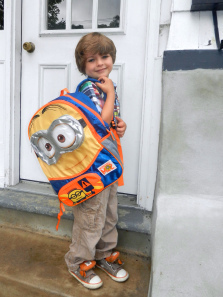


August 7, 2014
Self Edits: Work and Rewards
I’m back from an amazing trip to the UK. It was two weeks full of fish and chips, castles and cricket.
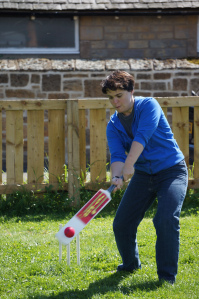
My family and I had so much fun seeing so many wonderful places and meeting some great folks. I won’t make you all sit through the thirty-minute slide show of all our pictures (they’re all on Facebook), but I think the pictures are worth a look. I am biased, though, because they are full of memories for me. I’ve actually been using them as rewards for getting my work done the last few days. Ten pages of editing earns me ten minutes of looking at vacation pictures.I cling to that reward system like a life raft. I’m not sure if that’s because the reentry process is so hard or if it’s the editing that’s killing me. Probably the combination of the two.
I am sure any of you who’s ever been on trip like ours knows about the reentry to real life and the come-down associated with it, but I realize that most readers haven’t been a party to the grueling work of an in-depth self edit. In fact, I’ve met some authors who aren’t familiar with the grueling work of an in-depth self edit, and while I envy them a little bit, I’m not going to lie. I judge them a little bit, too. I know, I know. It’s not Christian to judge, and everyone has her own style. Maybe some people can really write flawlessly the first time out, but I think that’s rare. When I hear an author say she finished a novel and sent it right off to her editors, or gave it a quick read then sent it off, I want to shake them, and I bet their editors want to do worse. I went to an “Editor’s Pet Peeves” panel at GCLS, and every single editor there said that the more authors self-edit their work before sending it in, the more a professional editor can do with a manuscript. If they spend their time fixing obvious flaws that you could have/should have caught, they can’t get to the major nuanced aspects of their craft that you (should!) pay them the big bucks for.
With that in mind, I spend one to two months of full-time work on self edits, and let me tell you, I earned lots of picture breaks along the way, so those of you willing to sit through a detailed recap of that work should get a few pictures along the way, too. Here’s one to go on: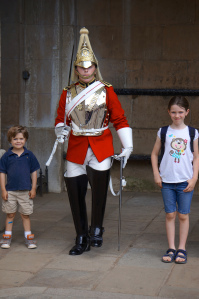
Now for stage one of self edits: The initial read through.
This is pretty much what it says. The first time, I read the entire document from start to finish. I generally try to do this in a couple days, much the same way a reader will (hopefully) read the book. I fix little things I notice and make notes about big-picture issues like dropped threads, inconsistencies, places where the story lags. Then I send it to my beta readers to look for the same types of thing. I do not give them vague instructions like, “Just be brutally honest!” A) Vague much? B) No one wants brutality exacted on their fledging project. I want constructive cricism in very specific areas. Grammar is not one of them. Neither is word choice or personal preference like “I don’t like redheads.” I want to figure out if the story holds a reader’s interest, if the characters are likable. Do you root for them together? Are their motivations clear (even if you don’t agree with them)? Are there any places you get more? Any places you felt like you didn’t get enough of? And I use betas who generally read and like the type of writing I do. I want someone who knows my genre, not someone’s ex-English teacher to fix my dialog punctuation here. Occasionally I’ll use a beta with a specific skillset to give more specific feedback. I had some life coaches take early looks at LoveLife, and Spanish-speakers who read Spanish Heart. Mostly, though, I use readers for big picture feedback.
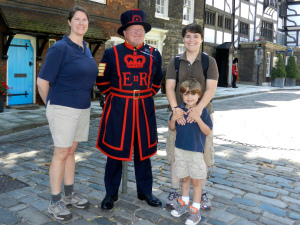
Stage two: The Read Aloud
Once again, this is just what it sounds like. I read the entire book out loud. This gives me a chance to hear my characters’ voices for the first time. It is the single best way I’ve found to check authenticity of dialog (short of having professional actors read it on stage). This also is the best way to catch sentences that go on too long or sentence structure that gets too repetitive. I also tend to find which long narrative passages work and which ones are just too wordy. And when I find a problem, I fix it right then and there. My manuscript loses several thousand words in this pass, and it takes a full week or more because of all the stopping, tweaking, and rereading. Also, one can only read aloud for so many hours a day before one’s throat starts to hurt.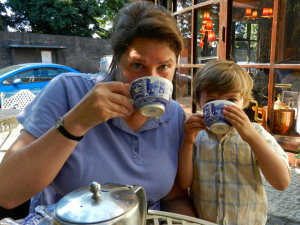
Stage three: The Writer’s Diet
The writer’s diet test is a tool that takes a sample of your writing and analyizes it for certain types of words that generally signify trouble. It counts “to be” verbs, abstract nouns, prepositions, adverbs, and waste words (it, this, that, etc.) and rates each area in health terms from “Lean” to “Heart Attack.” It’s available for free online, and I don’t know why more writers don’t use it. No, that’s not true. I know why. 1) A lot of people don’t know it exists. 2) It’s tedious and time consuming. Now you know it exists, so that’s no longer an excuse. As for number two, put on your big-girl panties and act like a professional. Do you think YoYo Ma doesn’t practice because it’s time consuming? You think Michael Phelps doesn’t find all the laps he swims to be tedious? If you want to be your best, you have to do the work. And I want to be my best, so I plug my entire 90,000-word manuscript into the tool 1,000 words at a time. Generally, I expect every single thousand-word section to come back as lean. If it doesn’t, then I tweak it until it does. I generally lose another couple thousand words through this process due to that fact that waste words are a real issue for me. “To be” verbs used to be a problem too, but after several years of using the writer’s diet I’m not nearly as dependent on them. Still, this stage can take another week, depending on the length of the manuscript and the state of the writing.
Caveat – This tool is just that, a tool, and as with any tool it can be used poorly. The writer’s diet test should in no way take the place of your common sense or artistic integrity. When writing LoveLife, fir example, my life coach character was often high in “to be” verbs in scenes when she was quietly reflecting. Well. no kidding: a person who is meditating should have a lot of “be” in them. Sex scenes are generally high in prepositions because a lot of things go in and on things. Use the tool as a scalpel, not a blunt instrument, people, but even in those exceptional scenes, nothing should reach a “flabby” level.
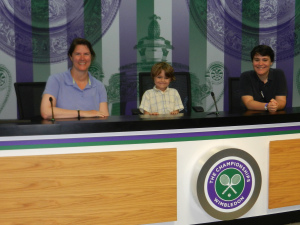
Stage Four: The Don’t Make The Same Mistake Again Phase.
I learn something (read “many things”) new with every novel. I’ve worked with some very good editors and received wonderful feedback from readers and reviewers as well. When I learn something while reviewing one manuscript, I write it down for use in all futures ones. I now have a list that’s four pages long of little mistakes I’ve made in the past. Once I’ve done all the major overhauls, I break out that checklist and go one by one down the whole line. One of the first notes I got was about writing out the word Okay instead of OK. So item number one, I do a find-and-replace function for the word “OK.” There are several like this. Then I move on to words I frequently misuse, “lose/loose,” “further/farther,” “peak/peek.” Once again, tedious, but not too hard. Then I move on to contractions. I don’t use them enough, so I run a search function on every single combo (she is, he had, we have, etc.). I scan the entire manuscript over and over checking for these words and deciding on a case-by-case basis if they need to be combined. This is another area that’s gotten easier as the years have gone on because I catch them more and more on my initial read-aloud, but I never catch them all, and that’s my goal.
Then I move on to my commonly over-used words. My list is more than half a page long (Look, smile, take, process, grin, curves, etc.) I don’t know what yours are, and only you can decided how many is too many, but I do a “find all” and highlight them, then go through the entire manuscript to cut them down. The same goes for filler words (Just, that, really, very) the writer’s diet will tell you when you have too many of some of those, but their version of “too many” is too generous for me. Many times they can be removed from a sentence without changing anything else, and if they can, then they should. No mercy: slash them. If they can’t be removed without changing the sentence, then you have the harder task to deciding if that sentence should be changed or not. Only you can make the call, but one thing highlighting does is show you where they are clustered, and if you have whole paragraphs lit up like Christmas trees, you might want to consider cutting the cord to that one. This take can take a week or more depending on the shape the manuscript is in. It’s also one of the grumpiest stages of the process for me. Don’t try to do it so fast your eyes blur, or you lose your will to keep improving. Build in breaks and have chocolate on hand.
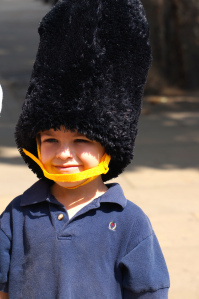
Stage 5: Punctuation Purgatory
The worst of the worst for me. This will not be bad or even necessary for those of you are grammar/usage wizards (in which case, I envy you) but I have a mild form of dyslexia, and one of the strategies I developed to cope is whole word/phrase reading. Breaking things down into parts is impossible. I read whole groups of words as one, which makes spelling a weakness. (Thoguh I raed tihngs lkie tihs as fi nthoigns worng). It also means I don’t see punctuation most of the time even though I know most of the rules for using it. If you give me a sentence and tell me where the comma goes, I can tell you, but if you show me a sentence where the commas are misused and tell me to find the mistake, I absolutely cannot. Most people would just say, “Peace out, Girl Scouts,” with something like that and to be honestly for my first five books I did. I had WAY too many other things to worry about. Also I have a wife who has a Ph.D. in English and teaches grammar at the college level, so I’d just hand it over to her. However, this doesn’t help me get better, it doesn’t help my manuscript get better, and quite frankly it doesn’t do much for my marriage either. She actually threatened to take the comma key off my computer because it frustrated her so badly. So I decided that since it was my manuscript, I owed it to myself to give it my best, even if my best will never be perfect.
Now I do a find-all function on every single use of what I like to call “common commas situations” like the words “and” and “but” or quotation marks. Then once the are highlighted, pulling them out of the larger grouping of words, I can examine each instance individually and apply those comma rules I know (mostly) independent of the story. Did you catch that? I take every single “and,” every single “but,” and every single quotation mark in the entire manuscript, highlight it, and check to make sure it’s punctuated properly. Maybe you don’t need to do this. For your sake I hope you don’t, but I’m willing to bet we all have our weak spots, and if I can go that far to overcome mine, I hope you understand my lack of patience when it comes to authors saying they don’t have time or inclination to do the same with their own.
Will I catch every single comma? Every single typo? Every single mistake? Absolutely not! My wife will still proofread the manuscript before it goes out. My editors will still find things. Our final page proofers will still find things. That’s their job, but I want to make damn sure I’ve done my job to the best of my (sometimes limited) ability before I ask the same of anyone else, because at the end of the day it’s my name on the book.
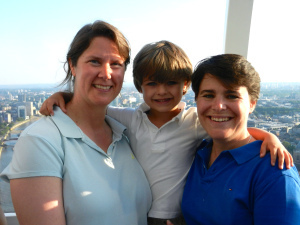
Stage 6: The Final Read Through
Another self-explanatory one. This is my last chance to read the book from start to finish before it goes to my editor. Hopefully it’s in good shape, and this is a fun read with just a bit of polishing, but don’t worry, this isn’t the end, because once your editor gets hold of it, you’ll get to go through this whole process all over again.
